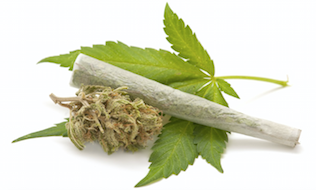

As several provincial governments seek feedback on their legislative framework for recreational cannabis, the Canadian Life and Health Insurance Association is raising industry concerns about how pricing, taxation and distribution of the drug will work.
In letters to the governments of Alberta, New Brunswick and Ontario, the organization suggests higher taxation and pricing of recreational cannabis may lead to more Canadians trying to obtain the drug through their benefits plans. “Our request of the government of Ontario is that, as you make decisions with respect to these matters, you consider the potential impact any price or taxation differential between medical and recreational cannabis may have on ‘pushing’ individuals into the medical system,” wrote Joan Weir, director of health and disability policy, in one of the three letters sent out last week.
“The same analysis would apply to distribution of recreational cannabis where, today, distribution of medical cannabis is strictly controlled.”
Read: What’s the impact of medical marijuana on patients, drug plans?
The association is cautioning governments so “they don’t create some unintended consequences where there’s an inducement to move individuals to a medical model when they might not be truly eligible. . .,” says Karen Voin, vice-president of group benefits and anti-fraud at the CLHIA.
The CLHIA is also asking provinces to draft legislative frameworks so they provide clear guidance for health-care practitioners and ensure they prescribe cannabis only when it’s medically appropriate to do so, says Voin.
While medical marijuana isn’t a standard benefit, many benefits plans will reimburse claims through health-care spending accounts that cover products and services that are eligible for the Canada Revenue Agency’s medical exemption tax credit.
Read: Employers concerned about ‘Wild West’ surrounding marijuana legalization: HRPA
In its letters to the three provinces, the CLHIA noted that usage of medical marijuana has increased significantly over the years. While there were less than 8,000 permit holders in June 2014, that number rose to almost 200,000 permit holders two years later, it noted.
